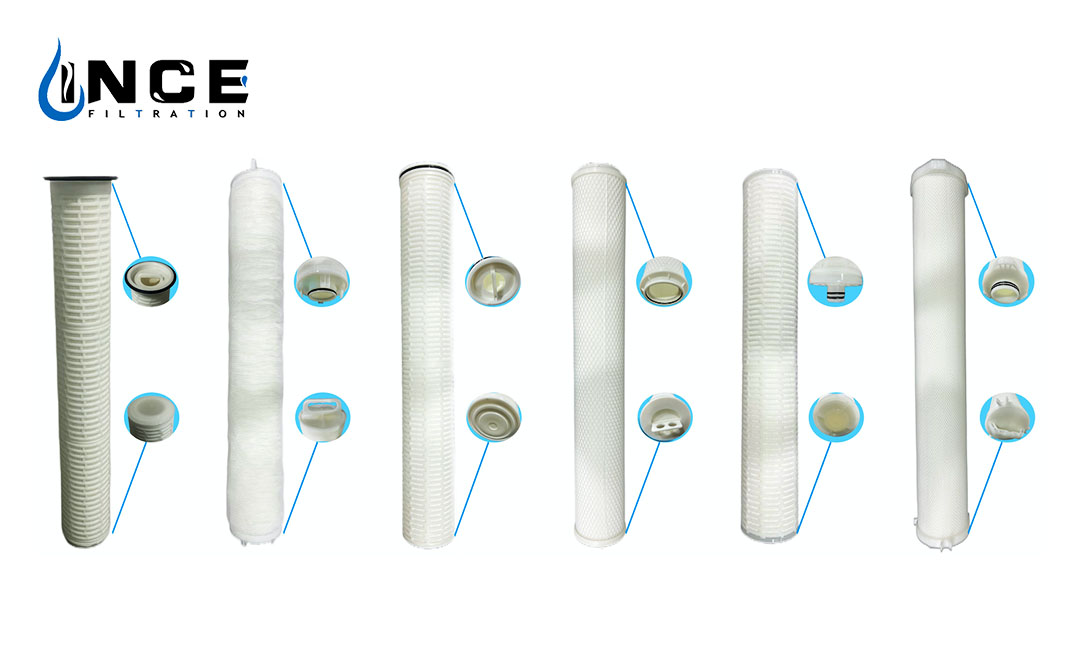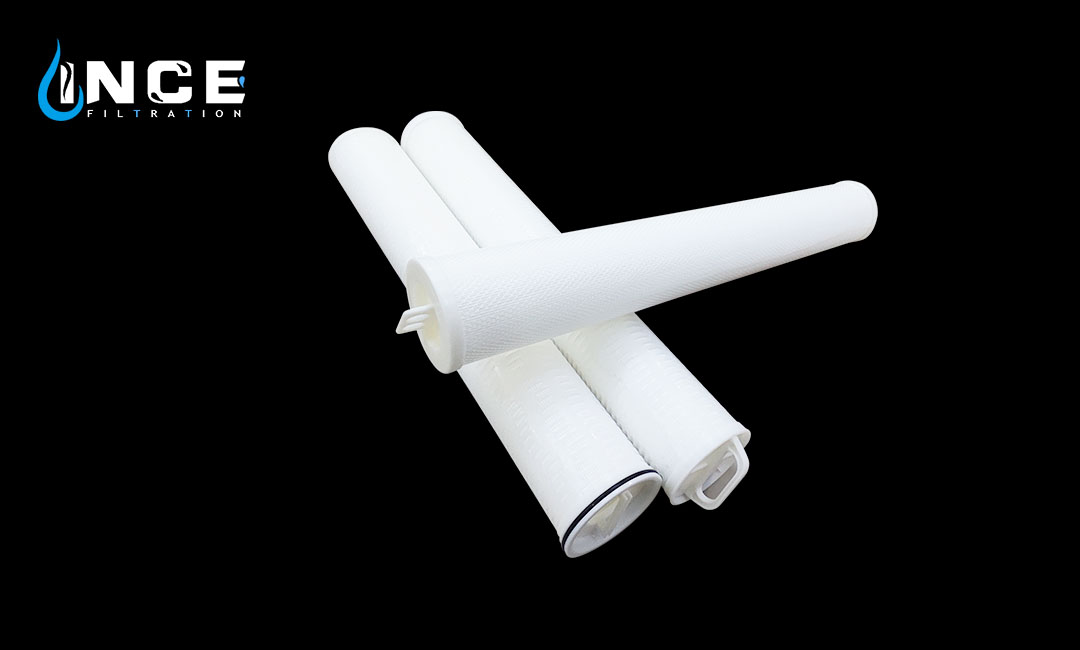How High Flow Filter Elements Enhance System Performance
Improved Filtration Efficiency
High flow filter elements are an essential component in many industrial systems, providing improved filtration efficiency and enhancing overall system performance. These filter elements are designed to handle high flow rates while maintaining the same level of filtration effectiveness, making them ideal for applications where a large volume of fluid needs to be filtered quickly and efficiently.
One of the key benefits of high flow filter elements is their ability to reduce pressure drop across the system. Traditional filter elements can create a significant pressure drop as fluid passes through them, which can lead to decreased system efficiency and increased energy consumption. High flow filter elements, on the other hand, are designed to minimize pressure drop while still providing the same level of filtration performance. This results in improved system efficiency and reduced operating costs over time.
In addition to reducing pressure drop, high flow filter elements also offer superior dirt-holding capacity compared to traditional filter elements. This means that they can capture and retain a larger volume of contaminants before needing to be replaced, resulting in longer service intervals and reduced maintenance requirements. By extending the life of the filter element, high flow filter elements help to minimize downtime and improve overall system reliability.

Another advantage of high flow filter elements is their ability to handle a wide range of fluid viscosities. Traditional filter elements may struggle to effectively filter fluids with high viscosity, leading to decreased filtration efficiency and potential system damage. High flow filter elements are specifically designed to handle fluids with varying viscosities, ensuring consistent filtration performance across a wide range of operating conditions.
Furthermore, high flow filter elements are constructed using high-quality materials that are resistant to corrosion and degradation. This ensures that the filter element will maintain its integrity and filtration performance over time, even in harsh operating environments. By using high flow filter elements, system operators can have confidence in the reliability and longevity of their filtration system.
Overall, high flow filter elements offer a number of benefits that can enhance system performance and efficiency. By reducing pressure drop, increasing dirt-holding capacity, handling a wide range of fluid viscosities, and maintaining durability in challenging environments, high flow filter elements provide a cost-effective solution for industrial filtration applications. System operators can rely on high flow filter elements to deliver consistent and reliable filtration performance, ultimately improving the overall efficiency and effectiveness of their systems.
In conclusion, high flow filter elements play a crucial role in enhancing system performance by providing improved filtration efficiency and reliability. With their ability to reduce pressure drop, increase dirt-holding capacity, handle varying fluid viscosities, and maintain durability in harsh environments, high flow filter elements offer a cost-effective solution for industrial filtration applications. By incorporating high flow filter elements into their systems, operators can optimize performance, minimize maintenance requirements, and ensure the long-term reliability of their filtration systems.
Increased Flow Rates
High flow filter elements are an essential component in many industrial systems, helping to improve overall system performance by increasing flow rates and reducing pressure drop. These filter elements are designed to handle higher flow rates than standard filter elements, making them ideal for applications where a high volume of fluid needs to be filtered quickly and efficiently.
One of the key benefits of high flow filter elements is their ability to handle a larger volume of fluid without sacrificing filtration efficiency. This means that systems equipped with high flow filter elements can process more fluid in a shorter amount of time, leading to increased productivity and reduced downtime. In addition, high flow filter elements can help to extend the life of downstream equipment by removing contaminants before they can cause damage.
Another advantage of high flow filter elements is their ability to reduce pressure drop within a system. Pressure drop is a common issue in many industrial systems, caused by the resistance that fluid encounters as it passes through filters, pipes, and other components. High flow filter elements are designed to minimize pressure drop by providing a larger surface area for fluid to flow through, reducing the resistance and allowing fluid to move more freely.
By reducing pressure drop, high flow filter elements can help to improve overall system efficiency and performance. Systems equipped with high flow filter elements can operate at higher flow rates with less energy consumption, leading to cost savings and improved sustainability. In addition, reduced pressure drop can help to prevent system failures and downtime, ensuring that operations run smoothly and efficiently.
High flow filter elements are available in a variety of materials and configurations to suit different applications and requirements. Some high flow filter elements are designed for use in liquid filtration applications, such as water treatment, chemical processing, and food and beverage production. Others are designed for gas filtration applications, such as compressed air systems, HVAC systems, and industrial gas processing.
When selecting high flow filter elements for a specific application, it is important to consider factors such as flow rate, pressure drop, filtration efficiency, and compatibility with the fluid being filtered. High flow filter elements should be properly sized and installed to ensure optimal performance and longevity. Regular maintenance and replacement of high flow filter elements are also important to ensure that they continue to operate effectively and protect downstream equipment.
In conclusion, high flow filter elements play a crucial role in enhancing system performance by increasing flow rates and reducing pressure drop. These filter elements are designed to handle higher volumes of fluid while maintaining filtration efficiency, leading to improved productivity, reduced downtime, and cost savings. By selecting and maintaining high flow filter elements properly, industrial systems can operate more efficiently and effectively, ensuring smooth and reliable operations.
Extended Equipment Lifespan
High flow filter elements play a crucial role in enhancing the performance of various systems, ultimately leading to an extended equipment lifespan. These filter elements are designed to handle a higher flow rate compared to standard filter elements, making them ideal for applications where a large volume of fluid needs to be filtered quickly and efficiently.
One of the key benefits of high flow filter elements is their ability to reduce pressure drop across the system. When fluid flows through a filter element, it encounters resistance due to the filter media. This resistance, known as pressure drop, can have a negative impact on system performance by reducing flow rates and increasing energy consumption. High flow filter elements are designed to minimize pressure drop, allowing fluid to flow through the system more easily and efficiently.
By reducing pressure drop, high flow filter elements help to maintain optimal flow rates within the system. This is particularly important in applications where a consistent flow rate is critical for proper operation. For example, in hydraulic systems, maintaining a steady flow rate is essential for ensuring smooth and reliable performance. High flow filter elements help to achieve this by minimizing pressure drop and ensuring that fluid can flow through the system at the desired rate.
In addition to improving flow rates, high flow filter elements also help to enhance system cleanliness. These filter elements are designed to capture a larger volume of contaminants compared to standard filter elements, making them highly effective at removing particles and impurities from the fluid. By trapping contaminants, high flow filter elements help to prevent them from circulating through the system and causing damage to sensitive components.
Maintaining clean fluid is essential for prolonging the lifespan of equipment and reducing the risk of costly downtime. Contaminants such as dirt, debris, and particles can cause wear and tear on system components, leading to premature failure and the need for costly repairs. High flow filter elements help to prevent this by capturing contaminants before they can cause damage, thereby extending the lifespan of equipment and reducing maintenance costs.
Furthermore, high flow filter elements are designed to be more durable and long-lasting compared to standard filter elements. Their robust construction and high-quality materials ensure that they can withstand the rigors of demanding applications and continue to perform effectively over an extended period of time. This durability not only helps to reduce the frequency of filter replacements but also contributes to overall system reliability and uptime.
In conclusion, high flow filter elements play a crucial role in enhancing system performance and extending equipment lifespan. By reducing pressure drop, maintaining optimal flow rates, improving system cleanliness, and offering durability, these filter elements help to ensure that systems operate efficiently and reliably. Investing in high flow filter elements is a cost-effective way to protect equipment, reduce maintenance costs, and maximize the lifespan of critical systems.
Reduced Maintenance Costs
High flow filter elements are an essential component in many industrial systems, helping to remove contaminants and ensure the smooth operation of equipment. These filter elements play a crucial role in maintaining system performance and efficiency, ultimately leading to reduced maintenance costs over time.
One of the key benefits of high flow filter elements is their ability to handle a larger volume of fluid compared to standard filter elements. This increased capacity allows for greater flow rates, which can help to improve system efficiency and reduce the risk of clogs or blockages. By effectively capturing contaminants and preventing them from entering the system, high flow filter elements can help to extend the life of equipment and reduce the need for frequent maintenance.
In addition to their high flow capacity, these filter elements are also designed to provide superior filtration performance. By using advanced filtration media and innovative design features, high flow filter elements can effectively remove particles of various sizes and shapes from the fluid stream. This level of filtration precision helps to protect sensitive equipment components from damage and ensures that the system operates at peak performance levels.
Furthermore, high flow filter elements are often more durable and long-lasting than standard filter elements. Their robust construction and high-quality materials make them resistant to wear and tear, even in demanding industrial environments. This durability not only helps to reduce the frequency of filter replacements but also minimizes the risk of system downtime due to filter failures.
Another advantage of high flow filter elements is their ease of maintenance. Many high flow filter elements are designed for quick and simple replacement, allowing maintenance personnel to easily swap out old filters for new ones without the need for specialized tools or extensive training. This streamlined maintenance process helps to minimize downtime and keep the system running smoothly.
By enhancing system performance and reducing maintenance costs, high flow filter elements offer a cost-effective solution for industrial applications. While the initial investment in high flow filter elements may be higher than standard filter elements, the long-term savings in maintenance and operational costs make them a wise choice for many businesses.

In conclusion, high flow filter elements play a critical role in enhancing system performance and reducing maintenance costs. Their ability to handle large volumes of fluid, provide superior filtration performance, and offer durability and ease of maintenance make them an essential component in many industrial systems. By investing in high flow filter elements, businesses can ensure the long-term efficiency and reliability of their equipment, ultimately saving time and money in the maintenance process.
